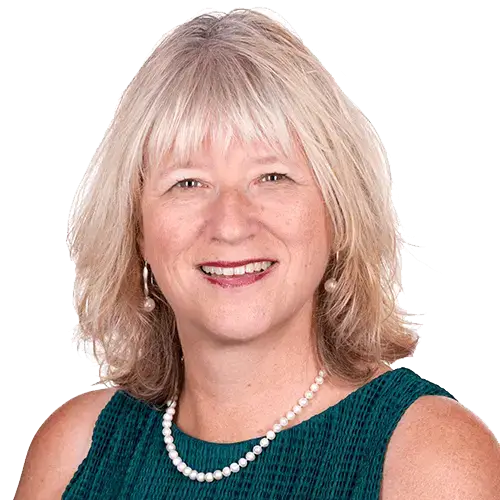Finances for life
I really enjoyed being involved with the judging for The Dynamic Awards again this year. It was a good opportunity to meet other likeminded business women, and to listen to their stories. I am always fascinated to hear how they got to where they are in their business and any lessons they learnt on the journey.
I also asked them what three words their friends would use to describe them, and there was a common theme of being passionate, determined and being kind and considerate with a good sense of humour. All of which I believe that my friends would also say about me.
Another common theme during some of the conversations was whilst many women understand the need for tight financial controls in their business, they were aware that many of their friends or business colleagues did not give their own personal finances the same attention.
We all agreed that there should be more emphasis placed on financial planning for women to help them to understand and prioritise what they will need at different stages throughout their lives – regardless of whether they have a life partner or not.
In an ideal world we would have all started being financially savvy once we started working or if we were lucky enough to be gifted wealth from a young age, but life isn’t like that. I met a successful 60-year-old recently who doesn’t have any private pension provision because no one had explained their value (compound interest is your friend) and the tax benefits of having one.
We need to be savvy financially so we protect ourselves in our later years as who knows what life will bring. I think many women are surprised by how the menopause makes them feel and of course for some women it can be very debilitating, and they may not want to work as hard during this time.
Here are my top tips for women at different ages to start thinking about building, managing and enjoying wealth:
20’s
In your 20’s you will reach milestones such as finishing education, getting your first job, renting/buying a home and enjoying life. It is important to think about your short, medium and the longer-term goals and start putting in place structures that will help you to reach them, such as buying a house, setting up a business etc.
Starting to invest for your longer-term goals gives savings, investments and pensions more time to grow.
30’s
At this age many business owners use pension contributions to also reduce both personal and corporate tax liabilities, so make sure you maximise the tax reliefs available to you.
If you can buy a commercial property to run your business from then there are considerable benefits to it being owned by a Self-Invested Personal Pension (SIPP) so that the rent paid by the business is paid into the SIPP, building an asset for the future.
You may by now have a family so planning for childcare costs, school fees and university fees needs to be factored in.
I would also encourage women to have a savings pot of their own – rather than pooling everything into the family finances, as easy access to money gives you flexibility and freedom should you decide you want to move life in a different direction.
40’s
Have a budget which looks at how much you need to live on each year and then if you have surplus cash, make sure you are using your personal savings allowances. At the time of writing, we are still awaiting further details on the new British Isa mentioned in the recent budget but there are useful tax benefits to these savings schemes.
Whilst I would hope all women start paying into a pension in their 20’s when they begin their career, it’s important to remember that workplace enrolment only began in 2012. It isn’t too late to start a personal pension or to increase your payments into an existing one but think about how long you would like to work for and what your longer-term goals will be.
50’s
Fifty is a great age to begin a ten-year plan. By now you are likely to have more surplus cash, children may have left home (and will hopefully be financially independent), so think about what changes you want to make and work towards them, whether you want to start up a business, succession planning if you want to sell a business, retrain for a new career, downsize your home etc.
A lot of women in their 50s want to carry on working but also want to have greater flexibility to allow them to enjoy travel or time with family, so part time and more flexible working could be considered.
If you receive an inheritance from family members take independent advice regarding investments and your exposure to Inheritance Tax.
Think about your own future security and make sure you have an up-to-date Will and consider a Lasting Power of Attorney so you know your wishes (health and financial) will be carried out if you no longer have the capacity to do so.
60’s
Before you reach your 60’s you need to think about your needs after leaving the workplace. We are all living longer so having an active and rewarding retirement is a goal for many of us.
Don’t just rely on there being a state pension, but if it is going to play an important role in funding your retirement, make sure you have enough qualifying years. You need 35 qualifying years receive a full state pension.
Ultimately, we are all different, all have different incomes, financial responsibilities and goals we would like to achieve, so starting thinking about them as soon as you can and remember it’s never too late to start.
If you would like further information, please get in touch.
Share this article
Email Alison
This site is protected by reCAPTCHA and the Google Privacy Policy and Terms of Service apply.
Subscribe to our newsletters
Our complimentary newsletters and event invitations are designed to provide you with regular updates, insight and guidance.
You can unsubscribe from our email communications at any time by emailing [email protected] or by clicking the 'unsubscribe' link found on all our email newsletters and event invitations.
This site is protected by reCAPTCHA and the Google Privacy Policy and Terms of Service apply.














